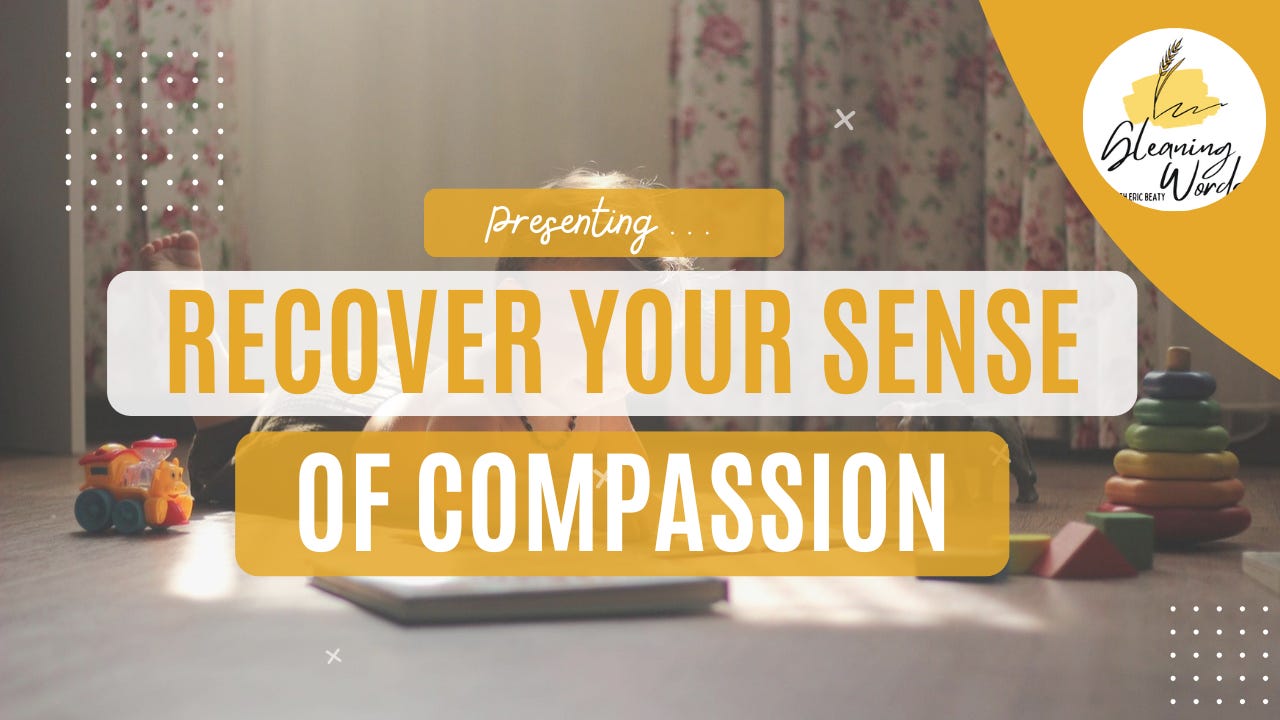Recover Your Sense of Compassion
Insights to help you be more loving—and forgiving—of your Artist Child
Continuing the theme of recording the latest exercises from The Artist’s Way in my Morning Pages Journal, this post showcases some of my favorite insights from the entire book.

Excerpted from my Raymond Waites Morning Pages journal on March 22, 2016
Another late start today, but I still feel like it’s going to be a good day. Things like that happen sometimes; you’ve just got to be ready and willing to be flexible.
This week in TAW is all about Recovering A Sense of Compassion. I read over it again yesterday, and I think it’s one of my favorite chapters so far. So much of it relates to my own personal struggle with creativity. Let’s cover the topics in today’s MPs since that worked so well last time.
Things happen sometimes; you’ve just got to be ready and willing to be flexible.
Fear
(Think “Resistance”)
Blocked artists are not lazy; they are blocked. Do not call the inability to start “laziness.” Call it fear.
The need to be a great artist makes it hard to be an artist.
The need to produce a great work of art makes it hard to produce any art at all.
Do not call procrastination “laziness.” Call it fear.
Use love for your Artist to cure its fear.
Enthusiasm
Over any extended period of time, being an artist requires enthusiasm more than discipline.
Enthusiasm is grounded in play, not work.
Our Artist is actually our child within, our inner playmate. What other people view as discipline is actually a play date with our Artist Child.
Our Artist Child can be enticed to work by treating work as play. In order to work well, many artists find that their workspaces are best dealt with as play spaces. Most little kids would be bored silly in a stark, barren room. Our Artist Child is no exception.
Remember that art is process. The process is supposed to be fun.
Our Artist is actually our child within, our inner playmate. What other people view as discipline is actually a play date with our Artist Child.
Interested in my Fiction happenings? Subscribe to 🦁 The Fiction Tamer.
Creative U-Turns
(Awesome section!)
We get more symapthy as crippled artists than as functional ones. Many recovering artists become so threatened [by increased production or success] that they make u-turns and sabotage themselves.
We usually commit creative harakiri either on the eve of or in the wake of a first creative victory. The glare of success can send the recovering Artist scurrying back into the cave of self-defeat.
An artistic U-turn arrives on a sudden wave of indifference. (See this chapter in the book for examples.)
Sometimes these U-turns are best viewed as recycling times. We come up to a creative jump, run out from it like a skittish horse, then circle the field a few times before trying the fence again.
An Artistic U-turn arrives on a sudden wave of indifference. (See this chapter in the book for examples.)
Keep reading with a 7-day free trial
Subscribe to Gleaning Words to keep reading this post and get 7 days of free access to the full post archives.







